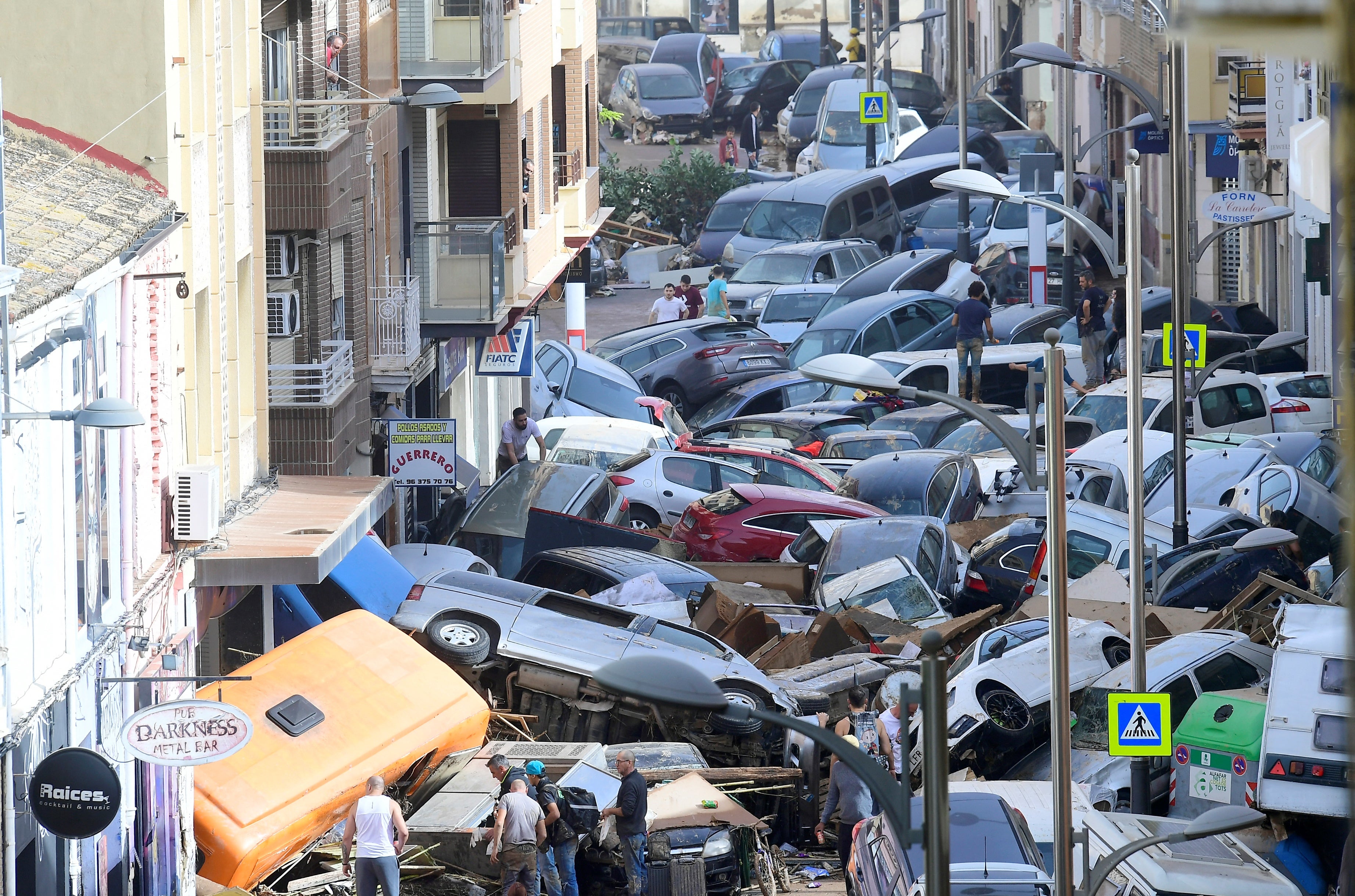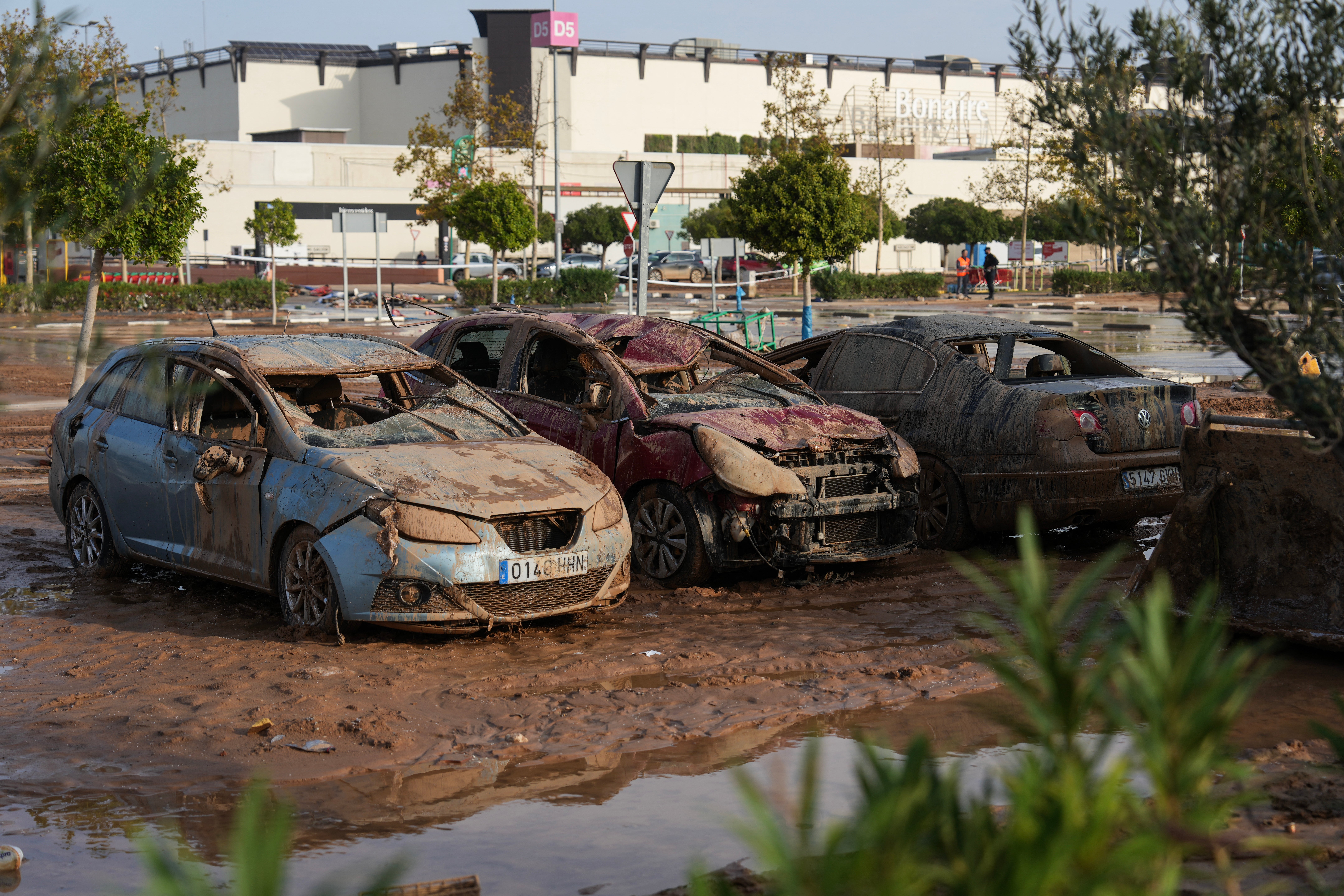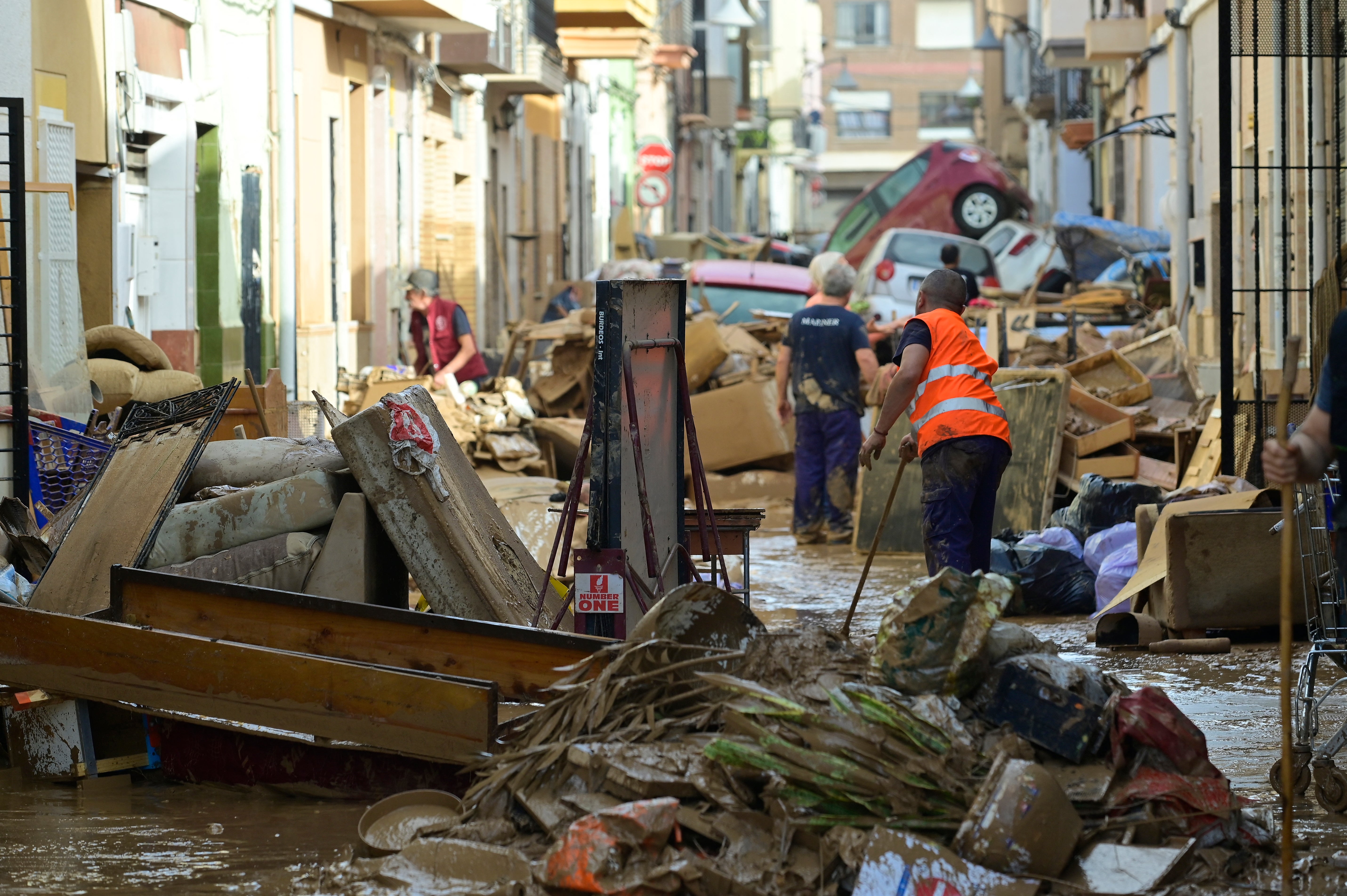
Yellow weather warnings for rain are in force in Spain’s northeastern Catalonia region a day after Barcelona was hit by fresh flooding following the country’s worst natural disaster in living memory.
Prime minister Pedro Sanchez warned that the devastation caused by flash flooding is “not finished” after at least 217 people were killed last week, mostly near Valencia.
Cities such as Valencia and Malaga were inundated last week after nearly a year’s worth of rain – close to half a metre – fell in just eight hours in some areas, leaving residents “trapped like rats” in homes and cars, as described by one desperate local mayor recalling the chaos.
A missing British couple, Don Turner, 78, and his wife, Terri, 74, were missing in the downpours and later found dead in their car on Saturday. In an emotional interview with the BBC, daughter Renee Turner said she was “extremely angry” at the Spanish authorities and the local government.

She is one of many who feel abandoned, with residents’ anger erupting on Sunday when a crowd pelted mud off the streets at Spain‘s king and queen, the prime minister and regional leaders as they made their first visit to an affected area.
The floods have also caused the death of another person from the UK. The unnamed 71-year-old man died hours after being rescued from his home on the outskirts of Malaga after heavy rain and hailstorms triggered flash floods in the area.
As volunteers engage in a huge clean-up effort after the floods swept away bridges and deposited cars and other debris in piled heaps on streets thick with mud, Spain’s interior minister Fernando Grande-Marlaska said that authorities can still not give a reliable estimate of the missing.
Calm weather returned to the hardest-hit areas around Valencia, but the AEMET state weather agency issued a yellow alert for Barcelona’s coastal area, the Pyrenees, Girona and Tarragona, all in the Catalonia area.
Those warnings, of up to 40mm of rain in 12 hours, span around 170 miles from Puigcerda in the north to Amposta in the south. Heavy rain pounded the Barcelona area on Monday morning, with more than 50 flights due to take off from El Prat airport cancelled or severely delayed.

The disaster, which has prompted the central government to deploy 10,000 troops and police officers, has killed over more than 200 people in Valencia, with further deaths in Castilla-La Mancha and Malaga. The number of missing remain unknown. There are fears the death toll could rise as the relief efforts reach previously inaccessible areas.
Emergency services are working around the clock to clear out a 1,800-space underground car park at a shopping centre in Valencia, where sudden, tsunami-like flooding caught staff and shoppers by surprise.
Emergency crews are navigating murky waters to locate potential victims at the shopping centre, using boats to access areas where at least a metre of water remains. As police teams pump out the floodwaters and search through the roughly 50 waterlogged vehicles discovered so far, no bodies have yet been found.
Survivors described the terrifying event to the Spanish newspaper El Mundo as “a nightmare” and “worse” than the “tsunami movie” with shop assistants recounting how they narrowly escaped as torrents of water surged into the complex.
Read our liveblog on the floods for the latest updates
While the most suffering was inflicted on municipalities near the city of Valencia, the storms unleashed their fury over huge swaths of the south and eastern coast of the Iberian peninsula. Homes were left without water as far southwest as Malaga in Andalusia, where a high-speed train derailed.
Greenhouses and farms across southern Spain were also ruined by heavy rains and flooding. The storms spawned a freak tornado in Valencia and a hail storm that punched holes in cars in Andalusia.

The town of Chiva, west of Valencia province, recorded 491mm of rain in just eight hours – more than it has seen over the past 20 months, according to Spain’s weather service.
Spain’s Mediterranean coast is used to autumn storms that can cause flooding, but this was the most powerful flash flood event in recent memory. Scientists link it to climate change, which is also behind increasingly high temperatures and droughts in Spain and the heating up of the Mediterranean.
Human-caused climate change has doubled the likelihood of a storm like this week’s deluge in Valencia, according to a rapid partial analysis by World Weather Attribution, comprising dozens of international scientists who study global warming’s role in extreme weather.







